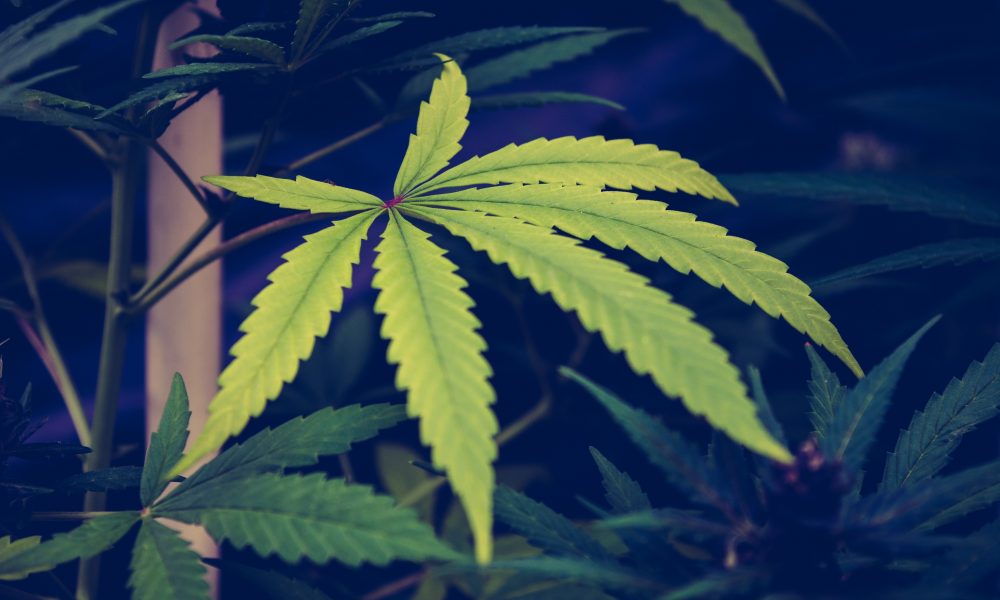Pennsylvania’s governor says he thinks officials in the state “don’t even have a choice anymore” on legalizing marijuana, and he feels there’s bipartisan momentum that lawmakers should leverage to get the job done.
With neighboring states such as Ohio enacting legalization in recent years, Pennsylvania Gov. Josh Shapiro (D) said last week that “this really comes down to an issue now of competitiveness,” as the state is currently “losing out on 250 million bucks a year in revenue that could go to anything from economic development, education, you name it.”
“The reality is, as long as we have safeguards in place to make sure our children aren’t getting their hands on it—it’s just like, we don’t want our kids out drinking, right?” he said. “And a lot of that is going to be a burden on parents and schools and others to make sure we educate on that. Then I think this is something we’ve got to compete on.”
“I actually think we don’t even have a choice anymore given the way in which this is moving so quickly across our region and across the country,” Shapiro told WILK News Radio, adding that he’s personally “evolved on” the issue and wants a legal cannabis market “focused on lifting up Pennsylvania businesses in the process—not these big national conglomerates—and we’re empowering people in local communities to it that I think some good can come from it.”
The governor made the comments days after unveiling a budget proposal that calls for marijuana legalization to be enacted this year, with sales beginning as early as next January.
Cannabis reform has stalled in the Pennsylvania legislature over recent sessions, but Shapiro said he sees a path forward this year.
“You’ve got some of the legislature who just—you know, it cracks me up they’re like kneejerk against everything I’m for, but that’s like their politics,” he said. “But I think what you’re beginning to see is, from the thoughtful folks out there, some bipartisan support emerged and you’ve got Democrats and Republicans sponsoring bills to legalize it.”
“It’s obviously wildly popular across the country and certainly in polling regionally and in the states. So if someone’s going to be against it, I think they’re going to have to justify that to their constituents as well,” he said. “There does seem to be an emerging bipartisan consensus that we’ve got to compete on this issue, and we’ll see if we can get it done. We’re going to work hard.”
In a separate interview with KDKA News Radio that the governor’s office also promoted last week, Shapiro noted that his office estimates that Pennsylvania could bring in $250 million in tax revenue annually from cannabis sales.
“The reality is we are leaving all that money on the table. We are falling behind other states,” he said. “I think it’s another story of us not being as competitive as we need to be, and I think its time has come.”
“It’s time to shut down the black market. It’s time to take the strain off of cops. It’s time to be competitive. And this is a way to do that,” the governor said. “We can’t let Ohio and the other states around us keep eating our lunch on this or any other issue. As I’ve said many times, I’m competitive as hell and this is one of those areas. We’ve got to compete it.”
A staffer in Shapiro’s office similarly remarked on the need to legalize marijuana after Ohio voters approved the reform at the ballot last November.
Also last week, Pennsylvania lawmakers convened another hearing on marijuana legalization issues—focusing on the industry perspective, with multiple stakeholders from cannabis growing, dispensing and testing businesses, as well as clinical registrants, testifying.
“From the outset, my personal goals for adult-use has been to put health and safety of our constituents first and to allow for equitable and meaningful opportunities, particularly for those harmed by the war on drugs,” Rep. Dan Frankel (D), chair of the full Health Committee who previously sponsored cannabis legalization legislation, said at the beginning of last week’s hearing.
—
Marijuana Moment is tracking more than 1,000 cannabis, psychedelics and drug policy bills in state legislatures and Congress this year. Patreon supporters pledging at least $25/month get access to our interactive maps, charts and hearing calendar so they don’t miss any developments.
Learn more about our marijuana bill tracker and become a supporter on Patreon to get access.
—
At the subcommittee’s last cannabis meeting in December, members heard testimony and asked questions about various elements of marijuana oversight, including promoting social equity and business opportunities, laboratory testing and public versus private operation of a state-legal cannabis industry.
During the panel’s first meeting late last year, Frankel said that state-run stores are “certainly an option” he’s considering for Pennsylvania, similar to what New Hampshire Gov. Chris Sununu (R) recommended for that state last year, though a state commission later shied away from that plan.
U.S. Sen. John Fetterman (D-PA) also recently complained that Pennsylvania is being “lapped” on marijuana policy as other states in the region enact legalization.
Meanwhile, Pennsylvania lawmakers recently advanced a pair of bills meant to prevent police from charging medical cannabis patients with impaired driving without proof of intoxication.
A Republican state senator also says he will soon introduce legislation that would remove barriers under state law to medical marijuana patients carrying firearms.
In December, the governor signed a bill to allow all licensed medical marijuana grower-processors in the state to serve as retailers and sell their cannabis products directly to patients. Independent dispensaries could also start cultivating their own marijuana.
A poll released earlier this month found that about two-thirds of Pennsylvania voters in the state support enacting marijuana legalization.
Search Interest In Delta-8 THC Nearly Twice As High In States Without Legal Marijuana, Study Finds
Read the full article here

